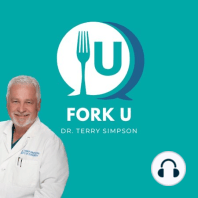3 min listen
Cancer and The Mediterranean Diet
ratings:
Length:
6 minutes
Released:
Aug 26, 2022
Format:
Podcast episode
Description
Adherence to the Mediterranean Diet decreases the risk of cardiovascular disease. The Seven Country Cohort Study clearly showed this.But what about cancer? Does the Mediterranean Diet impact cancer or cancer prevention? To study this, another cohort study began called the EPIC study. Uniquely, the EPIC showed not only a decreased risk of cancer but also mortality from cancer.All vegetables, even the green ones, have nitrates. It turns out that the components of The Mediterranean Diet decreases the risk of cancer, decreases the risk of cancer recurrence, improves survival from cancer, and decreases overall mortality.EPIC StudyThe European Prospective Investigation into Cancer and Nutrition (EPIC) is a large cohort study involving over 521,000 individuals from 23 centers from ten countries.Adherence to the Mediterranean Diet and LongevityThe EPIC researchers developed a simple scoring system to determine adherence to the Mediterranean Diet. Greater adherence to the Mediterranean Diet was associated with longevity.The Scoring SystemThe Mediterranean Diet is scored on a scale of one to nine. Nine being a perfect Mediterranean Diet Score, and zero being poor. Great adherence to the Mediterranean Diet is a score of seven points or more.Eating more of these foods gives you pointsThe Mediterranean diet is rich with vegetables, legumes, fruits and nuts, whole grains, and fish.You get a point for consuming 9 ounces or more of vegetables a day. If you consume less than nine ounces, you get a score of zero.Legumes will net you a point if you consume two ounces or more per day.Fruits and nuts are one point for nine ounces or more.Likewise, whole grains are worth a point for nine ounces or more.Fish is an average of an ounce a day, or two main meals per week. Thus, by consuming a diet rich in these five components can score five points.The weight is based on pre-cooked food.Lentils are a legume, and if you consume more than 2 ounces per day, you will score one Mediterranean Diet point. They are high in protein and fiber and low in saturated fat.Eat Less for MorePeople from the Mediterranean didn't eat much meat or dairy. By consuming less of these, you can achieve Mediterranean Diet points.Eating less than 4 ounces of meat a day is worth one pointConsuming 1.5 ounces of hard cheese a day or LESS is worth one pointConsuming less than 8 ounces of dairy is worth one point (mostly consume yogurt).Thus by eating less dairy and meat, or none, you can score two additional points.You might think that 6-ounce burger is small, but if you eat less than four ounces of meat a day, you get one Mediterranean Diet point. Eat more than four ounces, and you get zero points.AlcoholAlcohol is a component of the Mediterranean Diet but in moderation.For ethanol, a value of 1 was assigned to men who consumed between 10 and 50 g per day and to women who consumed between 5 and 25 g per day. This corresponds to 5 ounces of wine for women or 10 ounces for men.Olive OilOlive oil is an important component of the Mediterranean Diet. The type of fat in olive oil is mainly monounsaturated. The ideal ratio of olive oil or monounsaturated fats to saturated fats should be at least 60%.The best olive oils come from the US.Interventions in the Mediterranean DietIncreasing the score in the Mediterranean Diet by two points in the Mediterranean diet led to...
Released:
Aug 26, 2022
Format:
Podcast episode
Titles in the series (52)
The Carnivore Diet and Myths by Fork U with Dr. Terry Simpson
